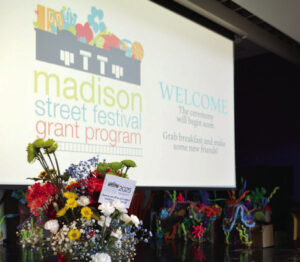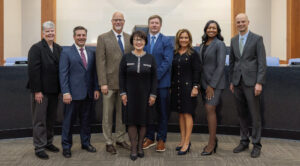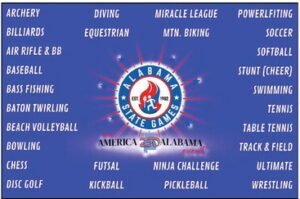Kim Dykes named state’s Augmentative and Alternative Communication Professional
MADISON – Kim Dykes, Lead Speech and Language Pathologist or SLP for Madison City Schools, has won the “AAC Professional Award” from the State of Alabama.
AAC represents ‘Augmentative and Alternative Communication.’
Previously, Dykes worked in early intervention, clinics and Bay District Schools in Panama City, Fla. “I started working for MCS in 2018 when my family relocated to Madison. I’ve worked in (various) settings, and the school system is my favorite,” she said.
In 2022, Dykes started working as MCS Lead SLP and AAC Specialist. “I now work with my amazingly talented team of 19 SLPs. I serve as a source of support in their work with students and advocate for our team,” Dykes said.
“ACC has (existed) for decades but has taken off with recent technological advances,” Dykes said. ACC is one of nine areas in which SLPs must train.
Being an expert in all areas is impossible. When SLPs recommend AAC for a student, Dykes evaluates students’ individual needs for the best type of AAC.
Dykes provides teachers’ training, parents’ AAC training and support in new classroom communication, along with working directly with students.
AAC involves different communication modes other than spoken language or voice, including sign language, gestures, eye gaze and icons, or pictures representing words.
Icons can be low-tech, like printouts; high-tech devices; or “speech-generating devices” that speak when a student presses an icon’s button. “The iPad’s invention made high-tech AAC much more accessible, because technology typically costing thousands of dollars can now be purchased as an app for much less,” Dykes said.
“A school is always full of energy and excitement! As a school-based, speech-language pathologist, we see a variety of students and a wide range of needs,” Dykes said. “We work with students who may have a mild speech delay . . . (or) who are just beginning to communicate.”
Learning should be fun, regardless the scope of a student’s communication issue. They feel impact “in the learning environment or else they wouldn’t be working with me. Students are often shy about their speech and language skills. By making speech sessions fun, I can build a positive relationship with students and encourage them to be the best communicators they can be,” Dykes said.
A lesson plan is prerequisite, but teachers often veer for what the child wants to communicate . . . particularly important with students using AAC, which is difficult. Finding shared interests can encourage a student to want to communicate,” she said.
Connection between communication and behavior especially interests Dykes. “I’ve found that targeting breakdowns in communication can lead to students effectively communicating and advocating for themselves,” she said.
In a recent success, Dykes obtained a high-tech AAC app on an iPad for a student who physically cannot speak. The student “loves attention and often nods her head when spoken to but (can’t) add much to a conversation,” Dykes said. “However, after giving her an iPad, she beams with excitement as she is able to tell about her interests.”
That student is “a chatterbox and shares all about her wants, needs and ideas. Most importantly, she (can) better advocate for herself in the classroom,” Dykes said.
At Auburn University, Dykes earned bachelor’s and master’s degrees in psychology. In 2015, she received a master’s degree in communication science and disorders from Florida State University. She grew up in Sand Rock, near Fort Payne.
Husband Andrew works as a research scientist for Georgia Tech Research Institute; his position requires world travel. The couple’s two sons are MCS students.
“I’m a true extrovert,” Kim said. She loves roller skating, meeting new people and being a lifelong learner. “My mom is now an AAC user as a series of strokes took away her ability to speak. I’ve been so blessed to work with her to give her a new voice.”

















